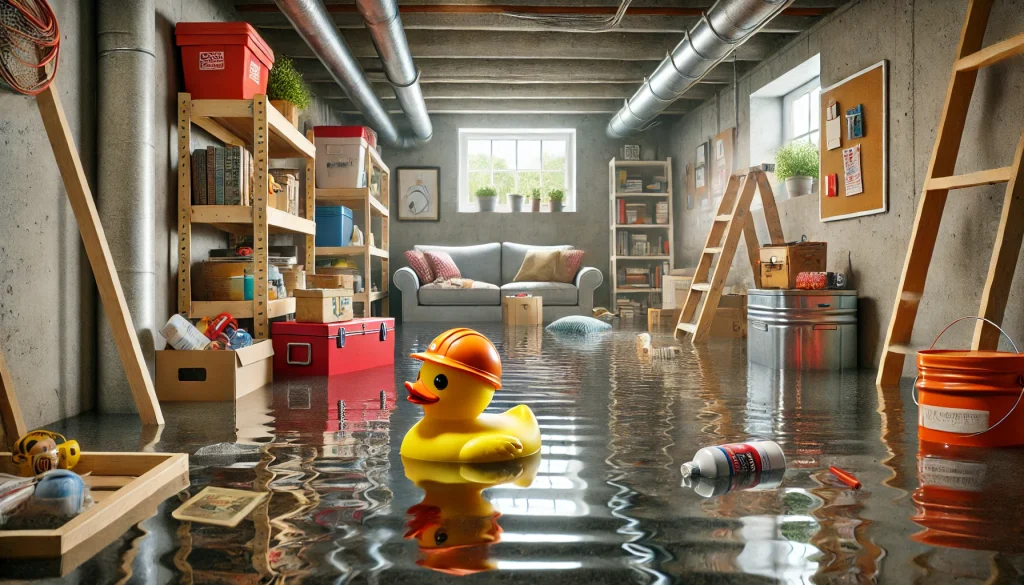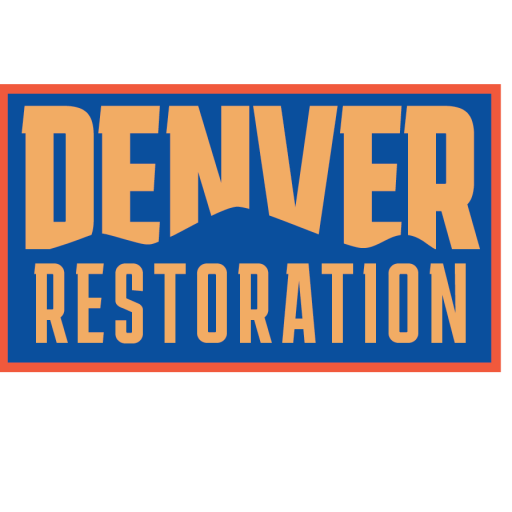Water damage can occur unexpectedly from heavy rains, burst pipes, or flooding. If left unaddressed, it can lead to structural issues, mold growth, and significant financial costs. In Denver, Colorado, where weather patterns can be unpredictable, understanding how to address water restoration promptly and effectively is crucial. This guide is designed to provide clarity, instill trust, and help you navigate the restoration process with certainty.
1. Act Quickly to Minimize Damage
The first step in dealing with water damage is to act immediately. Water can seep into walls, flooring, and furniture within minutes, causing irreversible damage.
- Turn off the water source: If the damage is due to a burst pipe or appliance malfunction, shut off the main water supply.
- Ensure safety: Avoid entering flooded areas with standing water until the electricity is turned off. Learn more about water safety from the Environmental Protection Agency.
- Remove valuables: Protect important documents, electronics, and sentimental items from further damage.
Acting swiftly not only minimizes the damage but also reduces the overall cost of restoration. By addressing the issue immediately, you increase the likelihood of saving valuable belongings and mitigating long-term structural issues.
2. Contact a Professional Water Restoration Company
While it may be tempting to address water damage yourself, professional assistance ensures thorough cleanup and restoration. In Denver, trusted restoration companies are equipped with specialized tools and expertise to handle the situation efficiently.
- Why choose professionals? Certified water restoration specialists can identify hidden damage, prevent mold growth, and restore your property to its original state. Learn about certification programs at the Institute of Inspection Cleaning and Restoration Certification (IICRC).
- Local expertise matters: Companies familiar with Denver’s unique climate can offer tailored solutions, taking into account factors such as altitude, seasonal weather changes, and local building codes.
Professionals also ensure that your property is restored safely and effectively, addressing underlying issues that could lead to future complications. Their experience and tools are invaluable in preventing secondary damage.
3. Document the Damage for Insurance
Before beginning restoration, document all damage for insurance purposes. This step ensures you can file a claim and receive adequate compensation.
- Take photos and videos: Capture the extent of the damage from various angles.
- Keep receipts: Save any invoices or receipts related to emergency repairs or temporary lodging.
- Contact your insurance provider: Notify your insurer immediately to begin the claims process. For help understanding policies, visit National Flood Insurance Program (NFIP).
Understanding your insurance policy is crucial. Many policies cover water damage, but exclusions for certain causes like flooding may apply. Being prepared with thorough documentation increases the likelihood of a smooth claims process.
4. Begin the Water Extraction and Drying Process
Prompt water removal is essential to mitigate further damage. Restoration professionals use advanced equipment such as industrial-grade pumps and dehumidifiers to remove water and dry affected areas.
- Remove standing water: Large amounts of water must be pumped out as quickly as possible.
- Dry thoroughly: High-powered fans and dehumidifiers help eliminate moisture from walls, floors, and furniture. Learn about the drying process at Restoration Industry Association.
- Inspect for hidden moisture: Professionals use moisture meters to detect water in hard-to-reach areas.
Drying thoroughly prevents structural weakening and minimizes the risk of mold development. Restoration teams are trained to handle the drying process efficiently, ensuring all areas of your property are completely moisture-free.
5. Address Mold and Mildew Risks
Denver’s varying humidity levels can increase the risk of mold growth after water damage. Mold can begin to form within 24-48 hours, making early intervention critical.
- Mold prevention: Professionals apply antimicrobial treatments to affected surfaces. For more about mold prevention, check CDC Mold Resources.
- Thorough inspections: Restoration experts inspect your property to ensure no mold or mildew is overlooked.
- Ongoing monitoring: Use a hygrometer to monitor indoor humidity levels and keep them below 50%.
Ignoring mold issues can lead to health problems and costly repairs. Professional treatment ensures a safe and healthy environment for your family or business.
6. Restore and Rebuild
Once your property is dry and free of mold, the restoration process begins. This includes repairing structural damage, replacing damaged materials, and ensuring your home is safe and comfortable.
- Structural repairs: Address weakened walls, ceilings, and flooring.
- Material replacement: Replace carpets, drywall, or insulation if necessary.
- Final inspection: Ensure all repairs meet safety standards and your expectations.
The rebuilding phase is an opportunity to improve your home’s resilience. Consider upgrading to water-resistant materials or installing better drainage systems to protect against future incidents.
7. Prevent Future Water Damage
Taking preventative measures can protect your property from future water damage and give you peace of mind.
- Install sump pumps: Protect your basement from flooding during heavy rains. Learn more at FEMA’s Flood Preparedness Guide.
- Maintain plumbing: Regularly inspect and maintain your pipes and water systems.
- Seal your property: Ensure windows, doors, and foundations are properly sealed.
- Monitor weather alerts: Stay informed about Denver’s weather conditions to prepare for storms or heavy snowfall.
Investing in preventive measures reduces the likelihood of future damage and enhances your property’s value. Simple steps like regular inspections and upgrades can make a significant difference.
Why Denver Residents Trust Local Water Restoration Experts
Denver’s unique environment demands specialized solutions for water restoration. Local companies understand the specific challenges homeowners face and offer reliable services tailored to the community’s needs. By choosing a trusted local expert, you’re ensuring your property receives the highest level of care and attention.
Local professionals are also familiar with Denver’s weather patterns and building requirements, enabling them to provide solutions that are both effective and compliant with local regulations.
Get Help You Can Rely On
If you’re dealing with water damage in Denver, Colorado, don’t wait. Contact a professional water restoration company to protect your home and restore your peace of mind. With the right support, you can confidently navigate the restoration process and safeguard your property for years to come.
Water restoration doesn’t have to be overwhelming. Trust experienced professionals who are committed to delivering high-quality results. Whether it’s minor water damage or a major flood, expert assistance ensures your home or business is restored to its best condition.
Additional Resources and Local Contacts
To further assist Denver residents, here are some trusted water restoration companies and resources:
- Denver Water Restoration Services: Providing comprehensive services, including water extraction, drying, and mold prevention.
- Flood Pros of Colorado: Specializing in rapid response and tailored restoration solutions.
- American Red Cross Colorado: Offers support and guidance for families affected by water damage (American Red Cross).
- Restoration Industry Association (RIA): Access industry-leading resources at Restoration Industry Association.
This comprehensive guide ensures you’re well-informed about handling water restoration in Denver, Colorado. For trusted solutions and peace of mind, rely on local experts dedicated to restoring your property with professionalism and care.

